June 28th is an important date, especially this year and even more so in the Balkans.
It is (not only) the day when in 1389 during the “Battle on the Field of the Black Bird” (Kosovo) a huge army of the Ottoman Empire (supported by a number of Serbian warlords, such as Marko Kraljevic, the famous folk hero) clashed with a united European army. Many facts and even the outcome of this titanic battle are disputed until today among historians – it seems that the result was a kind of draw since the status quo in the Balkans lasted for a number of years more after the battle.
Until today, this battle (or the manipulated narrative of it) is used by Serbian ultra-nationalists as a basis of a more than doubtful territorial claim. It shouldn’t be forgotten that the practical implementation of a policy of ethnic cleansing and genocide in Kosovo and other parts of former Yugoslavia started with a speech of Slobodan Milošević commemorating this battle and its distorted narrative of it.
But this June 28th is of course also the date when in 1914 (today exactly one hundred years ago) the Crown Prince and successor-candidate to the throne of the Austrian-Hungarian monarchy, Archduke Franz Ferdinand and his wife were assassinated on their wedding anniversary during a visit in the then Austrian province Bosnia-Hercegovina by Gavrilo Princip, a student of Bosnian Serb origin and member of the group Young Bosnia, a radical group that worked for a unification of Bosnia-Hercegovina with Serbia by all means (including terrorist acts).
Princip and his mostly very young associates – seven people were commissioned to commit the murder independently from each other, but the others failed or got nervous in the last moment – were linked to a secret society known as the Black Hand (the real name was Ujedinjenje ili smrt = Unity or death). The Black Hand consisted mainly of active or former officers of the Serbian military, many of them part of the group of assassins that killed the Serbian Czar Alexander and almost all of his family members in 1903. The mastermind behind both assassinations was a certain Dragutin Dimitrijević a.k.a. Apis, at the time of the Sarajevo murders holding a high position in the Serbian military intelligence.
We don’t know what would have happened if the Archduke had listened to the advice not to visit Sarajevo on such a sensitive day when the nationalistic feelings of the Serbs were boiling. There is a high probability that the First World War would have been avoided and that the Bosnian crisis would have taken another, less violent turn, just like the Albanian crisis a short time before had evaporated. It should be noted though that even after the assassination of Franz Ferdinand, a great war was anything but inevitable.
During the last two or three years a big number of new books and articles on the Road to Sarajevo and WWI in general have been published. That may have something to do with the centennial of the outbreak of the war. But it seems that also recent developments in the Balkans, and a re-definition of the reasons that led to the war are a reason for this increased output of literature.
Among the most remarkable and outstanding books dealing with WWI and the way to it is The Sleepwalkers by Christopher Clark.
The Australian Clark is Professor of Modern History at the University of Cambridge and a Fellow of St. Cataharine’s College. He is the author of several acclaimed monographs, such as The Politics of Conversion, Kaiser Wilhelm II and Iron Kingdom.
For The Sleepwalkers Clark has not only done a lot of groundbreaking work in British, French, German, Austrian and Russian archives, he has also diligently looked into the archives of the “smaller” but nevertheless important players (Serbia, Ottoman Empire, Bulgaria, Italy). Beside from these impressive archive studies Clark is well-connected in the sphere of historic research and profited also from unpublished works made available by colleagues. He also made extensive use of his contacts in order to discuss and if necessarily revise some aspects of his work after checking his draft against the opinion and expertise of his colleagues.
Additionally, Clark is an excellent writer. He is presenting us a very colorful narrative with lively and interesting characters. He has a good feeling for structuring his book and knows when to add an anecdote in order to make a point more clear. Despite the more than one hundred pages of annotations, the reader forgets easily that this is an academic work. This is a very vivid book – a rare exception for an academic book. All these ingredients raise the expectations of the reader to have an outstanding work in her/his hands – and indeed Clark doesn’t disappoint these expectations.
In the introduction, Clark makes it very clear that he is not particularly interested in “playing the blame game”. An overwhelming part of the literature on WWI and it’s outbreak is focused on or even obsessed exclusively by the question: “Who is to blame? Who was responsible?” Not that these questions are not very important. But in this context, questions of guilt and responsibility are usually part of an agenda. With the exception of Russia (or more correct the later Soviet Union), all powers that were involved in WWI published multi-volume collections of documents after the end of the war, mainly with the intention to justify their own actions and to increase the guilt and responsibility of the others, and thus manipulating public opinion in their own country (usually in a chauvinistic and ultra-nationalist way). Needless to say that all these collections omit or in some cases even falsify documents whenever it seems necessary.
Contrary to the so-called “Fischer Thesis” – Germany as the one bad apple state that is the single culpable for the war – Clark goes to lengths to show that the search for a “smoking gun” (also nowadays so popular when it comes to judging recent events – the Ukrainian crisis comes to mind) will produce a deeply disturbing result: There was no “smoking gun”, or to be precise all involved parties had their own “smoking gun”, i.e. their own share in the responsibility for what happened.
Instead of focusing exclusively on the guilt question, Clark is more interested in understanding – and helping the reader to understand – what were the complex motivations behind the acts of the key players. The whole issue is not only a question of how but also of why did the things happen as they did.
Clark has arranged the material in three parts. Part I focuses on the two primary antagonists, Serbia and Austria-Hungary. Their quarrel ignited the conflict.
Clark starts his account of events with the assassination of the Serbian Czar Alexander and his family by a group of conspiring officers under the leadership of a certain Dragutin Dimitrijevic, later also known as Apex in 1903. This conspiracy, executed with great brutality, marked a new departure in Serbian political history. Not only was the power struggle between the two dominating clans, the Obrenovic and the Karadjordevic, finally resolved by the extermination of the Obrenovic. It also paved the way for an extremely nationalistic and irredentistic policy that aimed openly at the increasing of Serbian territory at the cost of her neighbors.
This policy was not only directed against the Ottoman Empire (or any country with rival claims for Ottoman territory, like Bulgaria) that still controlled comparatively big territories in the Balkans, but also against Austria-Hungary that had just seized Bosnia-Hercegovina from the Ottoman Empire and that was home to a big number of South Slavs (whether they considered themselves as Serbs or not was not a matter of concern to official Serbia). Austria formally annexed Bosnia-Hercegovina in 1908, also with the aim to block Serb access to the Adriatic Sea.
Nikola Pašić, the rather enigmatic dominant figure in Serbian politics for more than 30 years, played a double game. Serbia depended economically from imports from Austria-Hungary and Pašić negotiated therefore several trade agreements with the unloved neighbor, but on the other hand he agreed on a secret customs union with Bulgaria and negotiated successfully for a big loan with favorable conditions from France. This loan was exclusively used for a big armament programme that increased considerably the firepower and strength of the Serbian army (it goes without saying that all weapons had to be bought in France).
Pašić, a Russophile, established also very close relationships with Russia. His relation with the Russian Minister in Belgrade, Nikolai Hartwig was so close that many people suspected that it was indeed Hartwig (an extreme Germanophobe, despite his teutonic name and his yearly spa in Bad Ems) on behalf of the Russians was the real ruler of Serbia. Count Hartwig was one of the most exposed figures of the “War Party” in Russia and did during the crisis in June and July his best to stir a European war on a large scale.
It should be noted that Pašić had also his own network of informants and spies (separated from those working for the military intelligence of Serbia). This network was especially active in Bosnia, and it is considered as established fact that Pašić knew about plans to assassinate the Archduke and sent some kind of warning to the Austrians. But this warning was not very specific and it was not taken seriously by the other side. How much exactly Pašić knew of the plans and to which degree he was involved in the assassination plot, is still unclear today. Pašić destroyed all his personal documents later.
Similarly detailed is Clark’s account of the situation of the other principal adversary in this conflict, Austria-Hungary. Contrary to Serbia, where Pašić was the dominant figure of politics over a long period, the decision makers in Austria-Hungary were a group of people with very opposing views. The Hungarian Prime Minister, Tisza, dreaded the prospect of including more Slavs into the Hungarian part of the double monarchy and was therefore very much opposed to conflicts with Serbia – his main concern was Romania. As to what kind of approach Austria-Hungary should take in its dealings with Serbia in the case of an imminent conflict there were two factions that had completely opposing views on this crucial question. The Archduke, although a rather unpopular figure, took a very “pacifist” view and was opposed to any adventure or aggression towards Serbia. The same was true of Berchtold, the Austrian Prime Minister and Minister of Foreign Affairs of Austria (and Hungary). The Chief of Staff of the army, Conrad von Hötzendorf was on the other hand someone that permanently urged the government to start a preventive war against Serbia, with which Austrian interests also clashed in Albania.
In Part II Clark gives us a bigger picture by including the other European powers in his narrative. All of them were bound by a complex system of treaties and alliances (part of them secret) together. There was the Triple Alliance between Germany, Austria-Hungary and the chronically unreliable Italy that obviously saw its interest already somewhere else. And there was the close alliance between France, who considered Germany as its main enemy, and Russia, who considered Austria-Hungary (and the crumbling Ottoman Empire) as the main obstacle to expanding its power in the Balkans.
Britain, although also bound by alliance to France and Russia played a special role. Anti-German feelings didn’t play a big role in England. It was indeed Russia that was viewed as the main threat to the Empire, since Russia had aspirations in Persia and the Far East that were threatening British interests there. An alliance with Russia would contain Russia. Bad relations with Russia would do a lot of harm to the Empire whereas good relations with Germany were a good thing, sure, but Britain wouldn’t really profit that much from them: Germany had lost the marine armament race anyway and wouldn’t be a serious threat to the British Navy, and the colonial ambitions of the Germans were not very successful and serious and no threat to vital interests of Britain. This very rational assessment shifted British policy in the direction of France and Russia.
An extremely interesting aspect of this part of the book is Clarke’s explanation regarding the question: Who really governed in Paris, Berlin, St. Petersburg? It is much more complicated as it seems. There were usually many players with different interests and different assessments of the situation involved. Ambassadors played a much more important role than today, the communication between relevant key players was frequently not formal, many decisions were taken by bypassing opponents who should have been involved in the decision making process. Also international organizations like we know them today were not existent – with all their imperfections these organizations play a very important role today simply by creating the opportunity for intense discussion of important questions between the key decision makers. In the pre-1914 days, state visits were quite rare and difficult to organize (usually by ship or train). Communication technology also put a limit on the decision makers that forced them frequently to act in a way they hadn’t if they were in the possession of more accurate information.
Part III finally gives a detailed account of the Sarajevo assassination and the mechanisms it ignited. I will not recount the details here because most of it will be known by anybody that is interested in history. But Clark presents a very good case against the simplistic assumption that it was one power alone that was responsible for the outbreak of the Great War. What is truly shocking is that many crucial decisions were taken in a way that was based on a sometimes grotesque misreading of the intentions of the other powers. There were no concrete plans to contain the conflict to what it was, a local conflict between neighbors.
Crucial to the complexity of the events of 1914 were rapid changes in the international system: the sudden emergence of an Albanian territorial state, the Turco-Russian naval arms race in the Black Sea, or the reorientation of Russian policy away from Sofia to Belgrade, to name just a few. These were not long-term historical transitions, but short-range realignments….This…made the system as a whole more opaque and unpredictable, feeding a pervasive mood of mutual distrust, even within the respective alliances, a development that was dangerous for peace…. Fluctuations in power relations within each government – coupled with swiftly changing objective conditions – in turn produced the policy oscillations and ambiguous messaging that were such a crucial feature of the pre-war crisis.
It is interesting what Clark says in his conclusions about the culpability for the war:
Do we really need to make the case against a single guilty state, or to rank the states according to their respective share in responsibility for the outbreak of war? In one classical study from the origins of literature, Paul Kennedy remarked that it is ‘flaccid’ to dodge the search for a culprit by blaming all or none of the belligerent states. A stiffer approach, Kennedy implies, ought not to shrink from pointing the finger. The problem with a blame-centred account is not that one may end up blaming the wrong party. It is rather that accounts structured around blame come with built-in assumptions. They tend, firstly, to presume that in conflictual interactions one protagonist must ultimately be right and the other wrong. Were the Serbs wrong to seek to unify Serbdom? Were the Austrians wrong to insist on the independence of Albania? Was one of these enterprises more wrong than the other? The question is meaningless. A further drawback of prosecutorial narratives is that they narrow the field of vision by focusing on the political temperament and initiatives of one particular state rather than on multilateral processes of interaction. Then there is the problem that the quest for blame predisposes the investigator to construe the actions of decision-makers as planned and driven by a coherent intention. You have to show that someone willed war as well as caused it. In its extreme form, this mode of procedure produces conspirational narratives in which a coterie of powerful individuals, like velvet-jacketed Bond villains, controls events from behind the scene in accordance with a malevolent plan. There is no denying the moral satisfaction delivered by such narratives, and it is not, of course, logically impossible that war came about in this manner in the summer of 1914, but the view expounded in this book is that such arguments are not supported by evidence.
If this is true, and the reviewer has little doubt about it after reading Clark’s masterfully written and researched book, then
the protagonists of 1914 were indeed like sleepwalkers, watchful but unseeing, haunted by dreams, yet blind to the reality of the horror they were about to bring into the world.

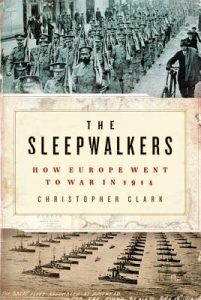
Christopher Clark: The Sleepwalkers. How Europe went to war in 1914, Allen Lane 2012, Penguin 2013
PS: One of the surviving assassins of Sarajevo, Vasa Čubrilović, wrote in 1937 a work for the Yugoslav government called Iseljavanje Arnauta (The Expulsion of the Albanians). In this work, Čubrilović is recommending the ethnic cleansing of Kosovo and the forced expulsion or extermination of the Albanians in Kosovo. This work was used as a script for the ethnic cleansing of Kosovo in 1999. Čubrilović’s work was re-published as a book in the 1980s, and Čubrilović, then in his 90s, was showered with the highest Yugoslav and Serbian orders by his disciple Slobodan Milošević. There is a direct line and continuity connecting the outbreak of WWI with the Kosovo War and the ethnic cleansing in this region. Official Serbia, an EU candidate, is celebrating the deeds of these people until today and is honoring them with monuments.
© Thomas Hübner and mytwostotinki.com, 2014. Unauthorized use and/or duplication of this material without expressed and written permission from this blog’s author and/or owner is strictly prohibited. Excerpts and links may be used, provided that full and clear credit is given to Thomas Hübner and mytwostotinki.com with appropriate and specific direction to the original content.

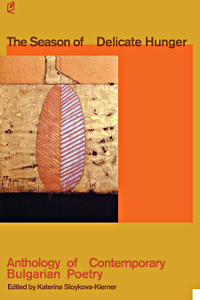


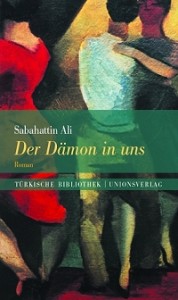
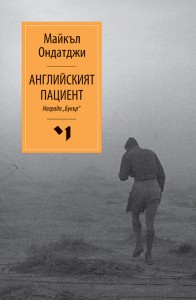


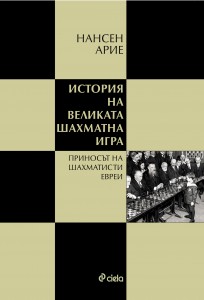
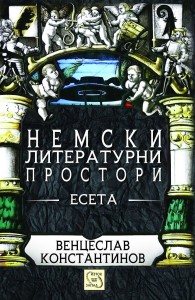

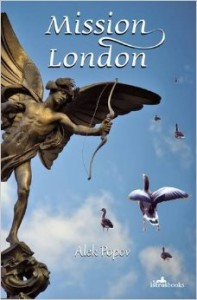
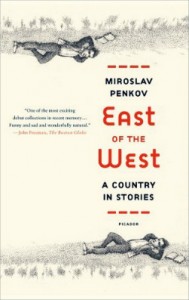
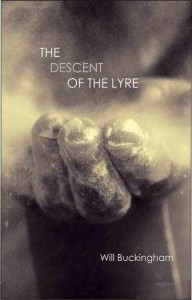
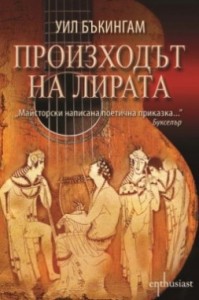


 Facebook
Facebook RSS
RSS Twitter
Twitter